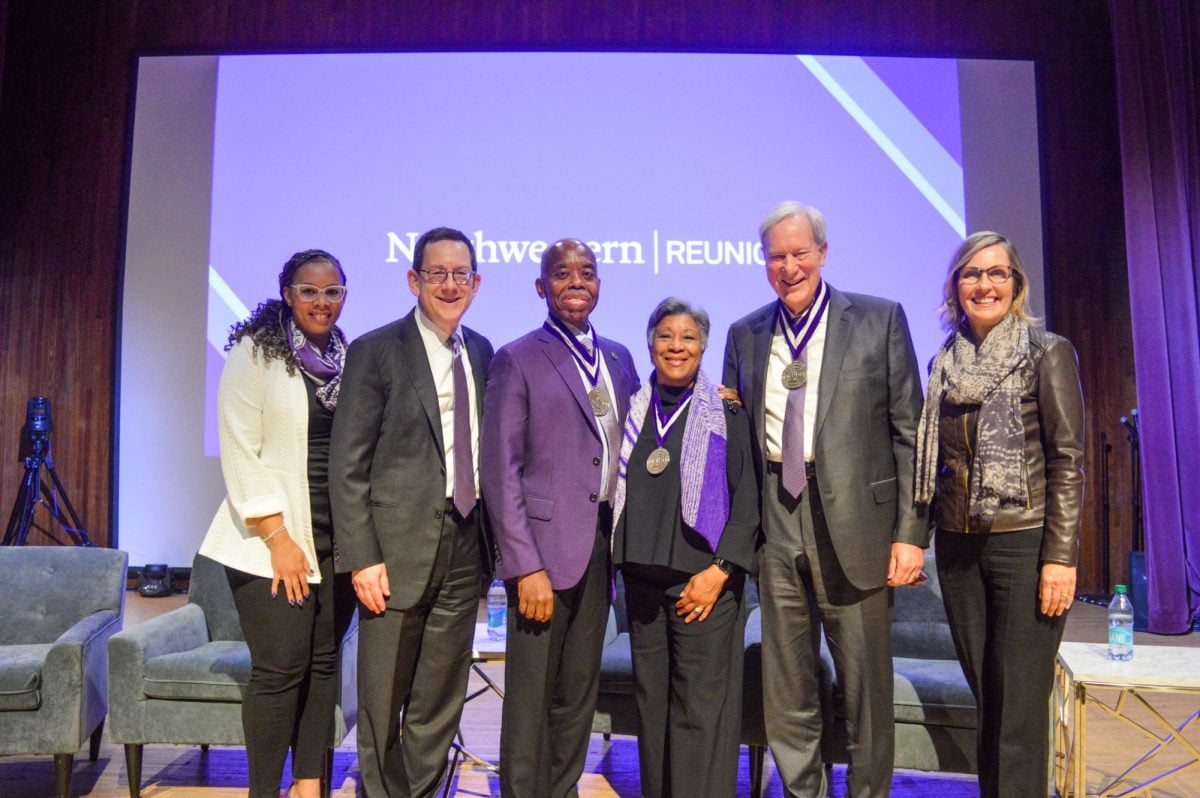Chief Rabbi Lord Jonathan Sacks, an international philosopher of Jewish thought and religious cooperation, spoke at Northwestern on Wednesday about cooperation among different religions.
The rabbi spoke in McCormick Auditorium to more than 200 people, including rabbis from the Chicago Rabbinical Council, NU history professors, Evanston community members and Hillel members.
“I am thrilled to hear him speak,” said Timothy Stevens,University chaplain and co-sponsor of the event. “This is a great opportunity for the NU community.”
According to Rabbi Leonard Matanky, president of the Chicago Rabbinical Council, this is Sacks’s first visit to Chicago. Chicago is one of the many stops in his 19-day trip in North America, which will also include visits to Harvard University and the U.S. Congress.
Hillel Executive Director Michael Simon said he previously met Sacks while working at Harvard’s Hillel. The Office of the Chief Rabbi contacted Simon last spring asking if he would like the rabbi to speak at NU.
“The rabbi is a great role model for university students,” Simon said. “He speaks to a broad-based audience about respecting different perspectives.”
For 20 years, Sacks has been Chief Rabbi of the United Hebrew Congregations of the Commonwealth in Great Britain. He has received 14 honorary degrees, including a Doctoral of Divinity presented by the Archbishop of Canterbury, according to Sacks’s website. He was knighted in 2005, and he is a life peer in the House of Lords. The rabbi has written 24 books about religious philosophy.
David Shyovitz, a NU assistant professor of Jewish medieval history, said Sacks is a rare influential figure. “Though he is a very traditional Orthodox Jew, Sacks works to celebrate religious pluralism, whereas other religious leaders have not,” Shyovitz said.
During his speech, the rabbi spoke about interfaith dialogue, which he defined as the struggle of maintaining one’s own beliefs while respecting and learning about others. He stressed keeping a conversation with different perspectives – religious or secular – does not require agreement. Using examples from his book, “The Dignity of Difference,” the rabbi emphasized it is possible for individuals to make change in today’s world.
“In all matters that affect us as either Jews or as citizens, we can agree to differ, but with respect,” Sacks said.
Hillel President Ben Goldberg said he was very impressed with Sacks not only on a religious level, but also on a political level.
“I realized he is a very serious thinker and activist,” Goldberg said. “By that he creates powerful messages of cooperation.”






